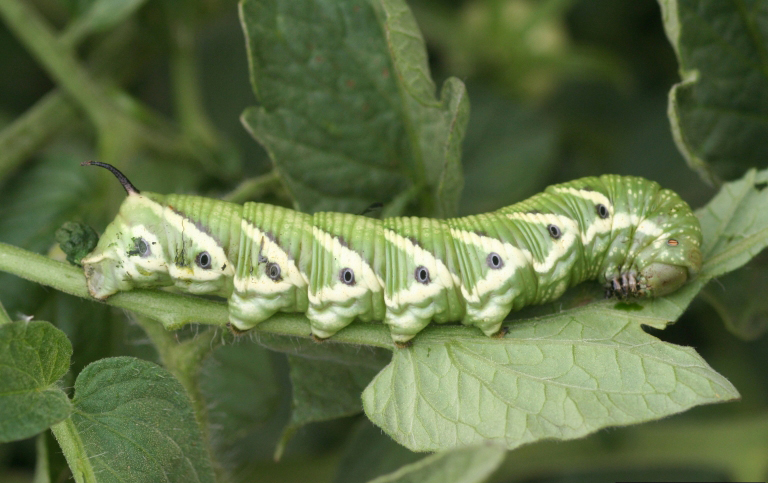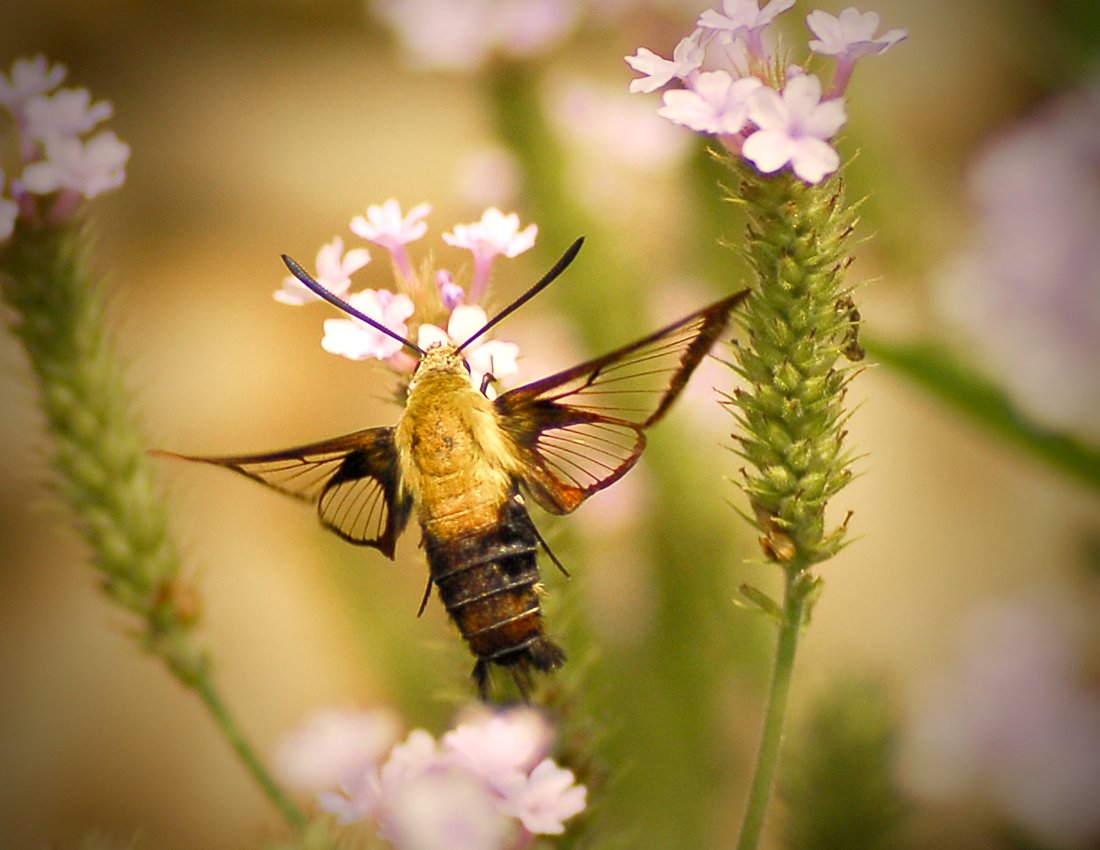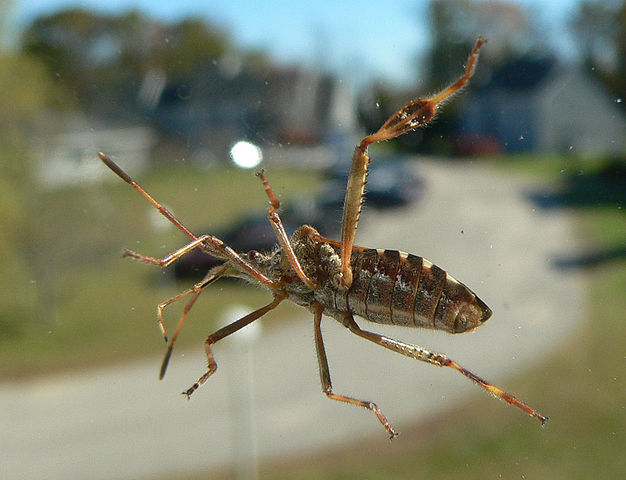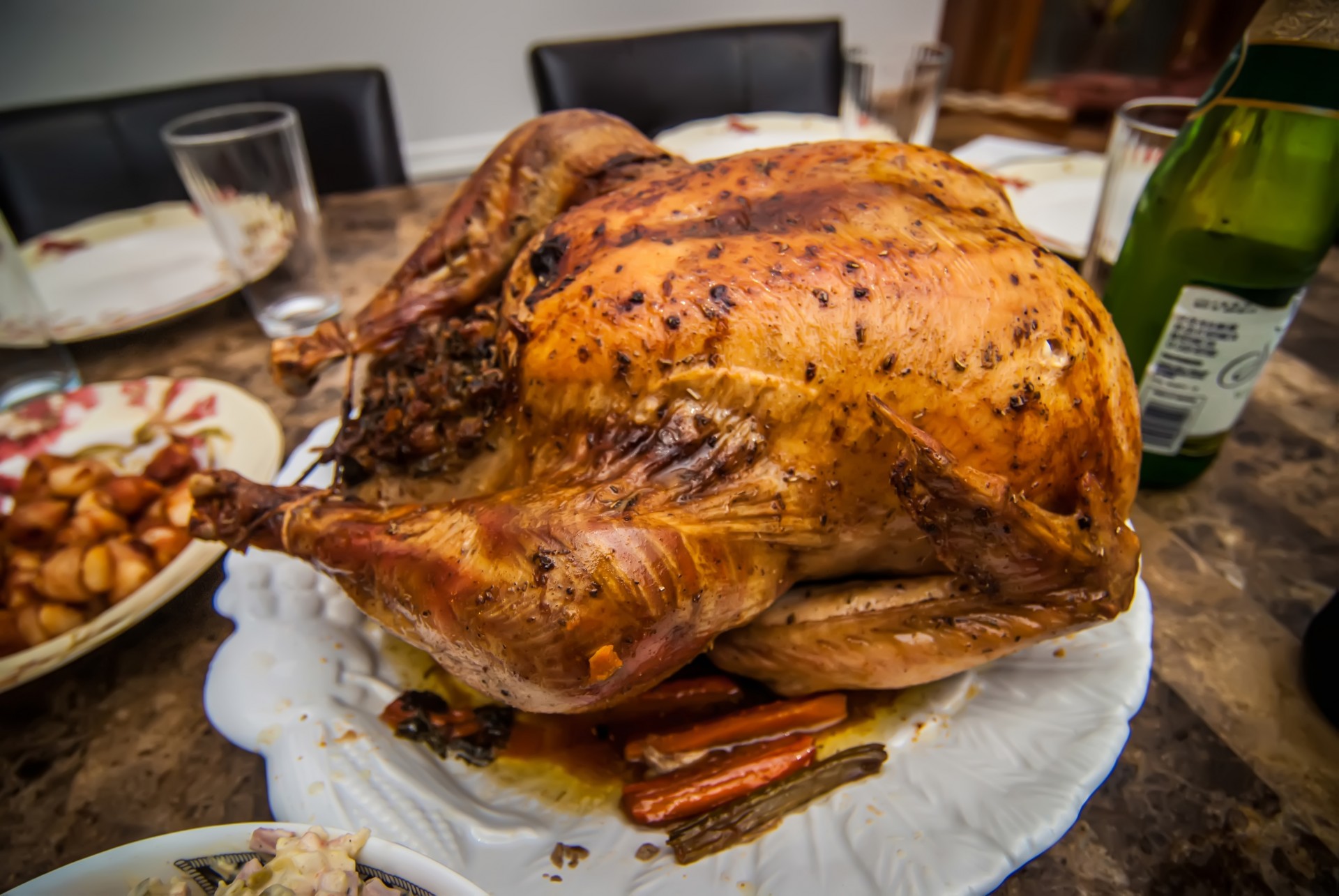Do insects get out of breath flying around outside? It would seem awfully inconvenient if they did. Thankfully for insects, the way they breathe is very different from the way we do.
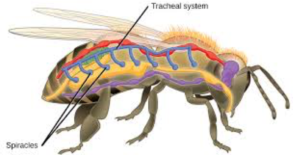
In humans, we take in air through our mouths which is then cycled through the lungs. Oxygen diffuses through the lungs and is transported to the heart by red blood cells to be pumped out to the rest of the body through our veins and arteries. As our tissues use up that oxygen, we expel carbon dioxide back out of our mouths when we exhale. Similarly, insects take in oxygen and excrete carbon dioxide. However, instead of using their mouths, they use tiny holes in their abdomen called spiracles. Additionally, rather than having veins and arteries, insects have tiny tubes that run throughout the body called tracheae. The spiracles act like a window allowing air and oxygen to flow in and out of the tracheae.
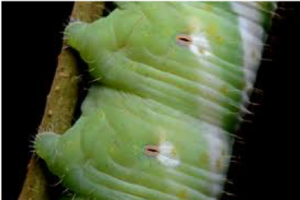
When insects find themselves in stressful, low-oxygen conditions they can close their spiracles. When this happens, the oxygen already inside the tracheae circulates allowing insects to live without “breathing” for hours. Some species of insect such as diving beetles can even keep pockets of oxygen under their wings to allow them to stay underwater for longer. These adaptations let insects uptake more oxygen proportional to their body size than humans.
However, this mode of breathing is what keeps insects small in size. Diffusion is less effective in bigger organisms because the air would not be able to travel down longer tubes.Much to many people’s relief, this is why we do not see beetles bigger than the size of small rodents. So overall it takes a lot for a bug to become out of breath!
Sources:
https://askabiologist.asu.edu/how-insects-breathe
https://crops.extension.iastate.edu/blog/erin-hodgson/can-insects-breathe-water
https://askentomologists.com/2015/01/21/wait-insects-breathe-but-how-part-i/

